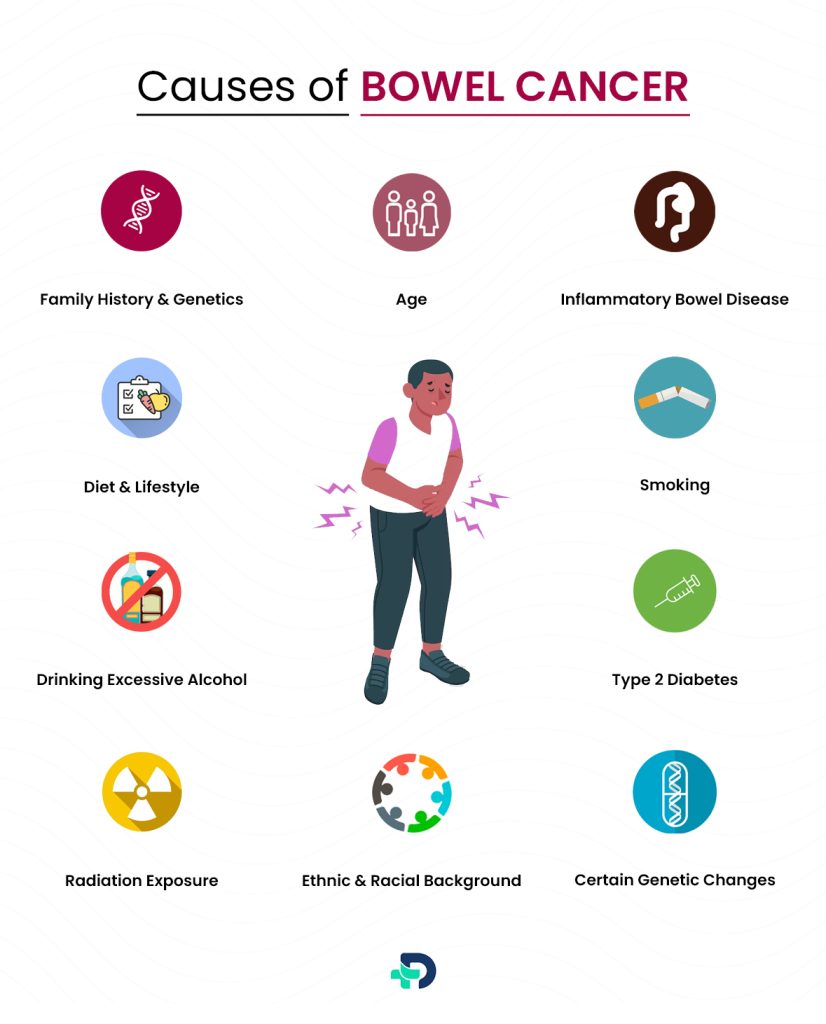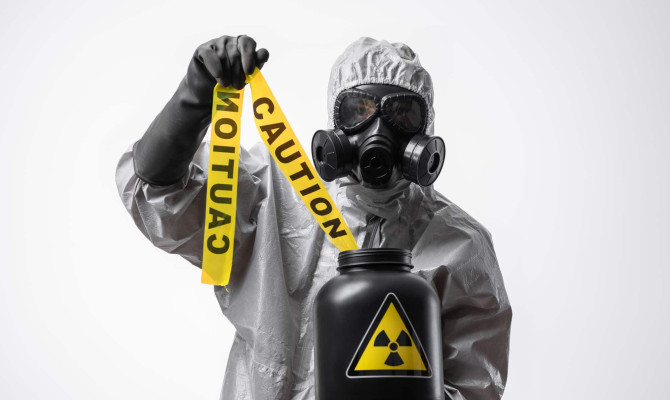Bowel Cancer Stomach Noises

- Stomach cancer
- 29 Sep 2023
Overview
Bowel Cancer Stomach Noises
Have you ever thought about what Bowel Cancer Stomach Noises mean? It’s not just you. People often wonder if they could be a sign of something bad, like bowel cancer. Even though it’s often just your body doing what it’s supposed to, it’s important not to ignore signs that don’t go away.

You will comprehend the connection between stomach rumbling and bowel cancer after reading this essay. It will also teach you how to tell the difference between normal sounds and sounds that could be warning signs. Finally, it will go over testing options and treatments. Let’s get started!
Learn About Bowel Cancer:
- Bowel cancer, also called colon cancer 1 About | Researched based study from Centers for Disease Control and Prevention , starts in the gut, or rectum. This is very important to know. A big part of preventing cancer is learning how it starts and how to spot signs like strange stomach noises. Genes also have a significant role in how you turn out, in addition to how you spend your life.
- Bowel cancer risk may increase as a result of certain hereditary gene alterations. These aren’t surefire ways to tell, but they make it much more likely. Regular screening is important for early diagnosis and good treatment, especially if you have a family background that points to these genetic factors.
The Link Between Noises in the Stomach and Bowel Cancer:
- There is a strange link between those bubbling sounds coming from your stomach and dangerous diseases like colon cancer. These noises coming from your stomach could be more than just hunger or digestion. They could be early warning signs.
- Bowel cancer is more likely to happen if you are older, have bad habits, or have a family history of it. So, if bowel cancer runs in your family, it’s even more important to listen to what your body is telling you.
- Changes in bowel habits that aren’t normal, like chronic stomach pain or bloating, can be signs of a problem that needs medical help. Don’t ignore these signs. If you catch bowel cancer early, it will be easier to treat and the outlook will be better.
Stomach Noises
How to tell if Stomach Noises are Normal or Not?
Have you ever thought what those sounds are that come from your stomach? You’re not alone, and it’s important to know what stomach sounds are normal and what aren’t. In this talk, we’ll get into the science behind these sounds, help you figure out if your stomach is making noises that aren’t normal, and explain how some noises could be signs of disease.
How to Figure Out Normal Stomach Noises?
It’s important to know that normal sounds coming from your stomach don’t always mean you have bowel cancer. These sounds are a part of your gut health and can be caused by different things, or “Noise Triggers,” like:
- Taking in food: Eating big meals.
- Eating foods that cause gas.
- High Stress levels.
- Too much exercise
Don’t think that stomach noise alone is a sign of something dangerous like bowel cancer. Instead, pay attention to other signs, such as pain that doesn’t go away, blood in the stool, and weight loss that you can’t explain. It is normal for a good digestive process to make some noise. But if you’re worried about how loud or often these noises are, you should talk to a doctor.
How to Recognise Abnormal Stomach Noises?
Abnormal stomach sounds 2 Abnormal Stomach Noises | Researched based study from International Foundation for Functional Gastrointestinal Disorders , which are also called gut sounds or abdominal sounds, can be signs of a number of health problems.
Stomach sounds are a physiological part of processing. They happen when food, gas, and fluids move through the GI system. But some unusual rhythms of stomach sounds can give clues about possible health problems.
Here are some types of unusual stomach noises and the health problems they may indicate:
Hyperactive Bowel Sounds:
- Gut sounds that are more frequent and louder than normal can be a sign of diarrhea, gastroenteritis, irritable bowel syndrome (IBS), or a blockage in the gut. Because of these factors, food can move quickly through the bowels.
Hypoactive Bowel Sounds:
- If bowel sounds are unusually quiet or don’t happen at all, it could mean that intestine action has slowed down or stopped. This can happen if you have constipation, ileus (a condition in which your bowels don’t move), or certain nerve conditions that affect the gut.
Borborygmi:
- These are loud, bubbling, or rumbling sounds that are often called “stomach growling.” They can be brought on by regular digestion, being hungry, or making too much gas.
- But borborygmi that doesn’t go away and is too loud could be a sign of a condition like small intestine bacterial overgrowth (SIBO).
High-pitched rushing sounds:
- These noises could mean that the small intestine is blocked. Conditions like adhesions (scar tissue), hernias, or tumors can cause a blockage.
“Silence” for a long time:
- If you don’t hear bowel sounds for a long time and you also have severe stomach pain, it could be a sign of something more serious, like a bowel blockage or rupture.
Clicks or rumbling:
- These sounds could be caused by air and liquids moving through the gut. They might be linked to diseases like diarrhea or gut inflammation.
It’s important to remember that abnormal stomach sounds can give doctors some signs, but they are only one part of figuring out what’s wrong. Doctors usually look at symptoms, a physical check, a patient’s medical history, and possibly other diagnostic tests (like X-rays, ultrasounds, or endoscopies) to find out what’s wrong.
How does Stress Affect Bowel Cancer and Stomach Noises that are Related to it?
Stress can have a lot of different effects on the body, and it is known to affect many parts of health, including how well the digestive system works.
Even though worry may not directly cause bowel cancer, it can change some things that could make it happen or make it worse if it already has. Stress can also change how your stomach sounds and how well it works in general.
Here’s how stress might affect bowel cancer and stomach noises tied to it:
Stress and the Function of the Gut:
- Changes in Motility: Stress can affect how the digestive tract moves, which could lead to changes in bowel habits. Some people get diarrhea or can’t go to the toilet when they are stressed. These changes in movement could cause changes in stomach sounds, like more or less regular bowel sounds.
- Pain Sensitivity: Stress can make people more sensitive to pain, especially stomach pain. This can make you more aware of noises or pain in your stomach, even if the noises themselves are normal.
- Chronic Inflammation: Long-term worry can cause low-level inflammation in the body that lasts for a long time. Some cancers and other health problems have been linked to long-term inflammation. Even though the link between inflammation and cancer is complicated, it’s possible that inflammation caused by stress could play a role.
- Immune System: Stress can make it harder for the immune system to control inflammation and respond to possible dangers. Even though this link is not fully known, a weak immune reaction could make it harder for the body to stop the growth of abnormal cells.
- Unhealthy Habits: Long-term worry can lead to unhealthy ways to deal with it, like overeating, smoking, drinking too much alcohol, or making bad food choices.
- Less medical attention: People with a lot of stress might forget to get regular checkups and screenings, which could make it take longer to find and treat diseases like bowel cancer.
If Stomach Noises aren’t Caused by Cancer, What else could they be?
Stomach noises, which are also called gut noises or stomach noises, are a normal part of digestion. Most of the time, they happen when food, water, and gas move through the digestive system. But if you have strange or annoying stomach noises, they could be caused by a number of things that are not cancer. Here are a few of the most common reasons for stomach noises:
- During Normal Digestion: Bowel sounds can be heard as food is broken down, mixed with stomach enzymes, and moved through the bowels. When the stomach and bowels are mostly empty, like between meals, these sounds are often easier to hear.
- Hunger: When your stomach is empty, gas and stomach contractions can make rumbling or growling sounds. People often say that these are “stomach growling.”
- Gas & Bloating: When gas builds up in the digestive system, bubbling or rumbling sounds can get louder. Gas can be caused by taking air, eating foods that make gas when eaten, or gut bugs fermenting carbs that haven’t been broken down.
- Constipation: When feces moves slowly through the intestines, it can cause more gas to be made and gut sounds to change. This could make things get louder or last longer.
- Diarrhea: Louder or more frequent stomach noises can be caused by more or faster bowel movements or by fluids moving quickly through the intestines.
- Irritable Bowel Syndrome (IBS): IBS is a common problem of the digestive system that can cause changes in bowel habits, such as diarrhea, constipation, and stomach pain. Changes like these can cause stomach noises.
- Gastroenteritis: It is a disease of the stomach and intestines that is often caused by an infection. It can cause changes in the sounds your bowels make, stomach pain, and diarrhea.
- Food Intolerance: If you eat foods that your body has trouble handling, you might get gas, bloat, or hear different sounds coming from your bowels. Lactose, which can be found in dairy, and some foods with a lot of fiber are often to blame.
- Stress & anxiety: As we’ve already talked about, stress and anxiety can change how the digestive system works and cause bowel sounds to change.
- Medicines: Some medicines can change the way your stomach moves, which can cause your stomach noises to change.
- Other Gut illnesses: Like gastric reflux disease (GERD), gastritis, and peptic ulcers, can cause changes in stomach sounds and other symptoms.
- Normal Variability: It’s important to remember that stomach noises can vary from person to person and can be affected by things like food, water, and general gut health.
If you have stomach noises and symptoms that last for a long time, are serious, or make you worried, you should talk to a doctor. They can look at your symptoms and medical background and do any tests that are needed to figure out what’s wrong and give you the right care.
Causes

Causes of Bowel Cancer
Most of the time, bowel cancer is caused by a mix of genetic, environmental, and lifestyle factors. Here are some of the main things that can make colon cancer more likely:
Age:
- The chance of getting colon cancer goes up with age. Most people diagnosed with bowel cancer are more than 50 years old.
Family History and Genetics:
- Having a history of colon cancer in your family or having a genetic condition like Lynch syndrome 3 Causes| Researched based study from National Institutes of Health or familial adenomatous polyposis (FAP) can make your chance of getting colon cancer much higher. Having a parent, brother, or child with colon cancer also makes the chance of getting it higher.
A History of Polyps or IBD ( Inflammatory Bowel Disease):
- People who have had precancerous growths in the gut called adenomatous polyps are more likely to get colon cancer.
- Chronic inflammatory gut diseases, like ulcerative colitis and Crohn’s disease, can raise the risk of colon cancer.
Diet and Lifestyle:
- An increased chance is linked to a diet that is high in red and processed meats and low in fruits, veggies, and fiber.
- Being overweight and not being active can also make you more likely to get colon cancer.
Smoking:
- Using tobacco, like smoking, makes the risk of colon cancer higher.
Drinking Excessive Alcohol:
- People who drink a lot of alcohol are likely to get colon cancer.
Type 2 Diabetes:
- Patients who have type 2 diabetes are more likely to get colon cancer.
Radiation Exposure:
- High amounts of radiation exposure, like from earlier treatments for cancer, can make the chance higher.
Ethnic and Racial Background:
- African Americans and Ashkenazi Jews are more likely to get colon cancer than other people.
Certain Genetic Changes:
- Certain changes in genes can make the chance of colon cancer higher. These changes can be passed down or picked up over time.
Signs
Signs of Colon/Bowel Cancer
If you have any of the following symptoms 4 Symptoms | Researched based study from Centers for Disease Control and Prevention for a long time, you should see a doctor or nurse to get a good evaluation and explanation.
Here are some Signs that you might have Stomach or Bowel Cancer:
- Persistent Indigestion or Heartburn: Indigestion or heartburn that happens often or lasts for a long time could be a sign of stomach cancer.
- Unexplained Weight Loss
- Feeling full after eating a small amount of food.
- Loss of Appetite
- Persistent Nausea or Vomiting
- Abdominal Pain or Discomfort: Pain, discomfort, or bloating that doesn’t go away.
- Blood in Stool or Vomit: Blood in your stools (black, sticky stools) or throwing up blood.
- Difficulty Swallowing.
Cancer of the Colon:
- Changes in Bowel Habits: Changes in bowel habits that last for a long time, such as diarrhea, constipation, or going back and forth between the two.
- Stools appear bright red or dark red with blood.
- Fatigue
- Anemia
Regular tests, especially for people who are more likely to get these cancers, can also help find them early.
What are the Last Signs of Bowel Cancer?
- Severe Stomach Pain: Increasing and constant stomach pain that might be followed by cramping or soreness can be a sign that the cancer has grown and is affecting nearby tissues.
- Abdominal Lump: If the cancer has gotten bigger, it might feel like a mass or lump in the belly.
- Gut Obstruction: The cancer can block or obstruct the gut, which can cause symptoms like severe stomach pain, distension, constipation, vomiting, and not being able to pass gas or stool.
- Bleeding: Bowel cancer that has progressed can cause bleeding, which can show up as bright red or dark and sticky blood in the stool or bleeding from the rectum.
- Anemia: Constant bleeding from the cancer can cause anemia, which makes you tired, weak, and your skin look pale.
- Perforation: In some cases, cancer can cause a hole (perforation) in the wall of the gut, which can cause serious stomach pain, fever, and signs of infection.
- Ascites: It is when fluid builds up in the belly, causing it to swell up and hurt
Signs you have loud bowel sounds:
- Loud bowel sounds, also called “hyperactive bowel sounds,” mean that there is more movement in the intestines. This could be caused by a lot of different things, like diarrhea, eating, or even some medicines. Bowel sounds in people with hyperactivity are often louder than usual and can sometimes be heard without a stethoscope.
Risk Factors
Risk Factors of Bowel Cancer:
- Smoking 5 Risk Factors | Researched based study from Centers for Disease Control and Prevention
- Physical inactivity
- People over 50 years old
- Overweight or obese
- Low fiber diet for long term
- Drinking alcohol in excess
- Eating excessive processed or red meat
- Close family history of bowel cancer
- Long-term case of ulcerative colitis and Crohn’s disease.
Screening of bowel cancer:
Screening for bowel cancer, which is also called colon cancer, is an important way to find it early and keep it from happening. Gut cancer has a significantly greater chance of being effectively treated and cured when it is discovered and treated early.
Diagnosis
How Bowel Cancer is Diagnosed?
Fecal Occult Blood Test (FOBT) or Faecal Immunochemical Test (FIT):
- This test looks for blood in the stool, which could be a sign of cancer or precancerous polyps in their early stages.
- FOBT uses chemicals to find blood in the stool, while FIT uses antibodies to find human hemoglobin in the stool.
- People are asked to take a small amount of their faeces at home. It is then sent it to a lab for testing.
- A positive test doesn’t always mean you have cancer, but it does mean you need to be checked out more, usually with a colonoscopy.
Flexible Sigmoidoscopy:
- In this process, a doctor looks at the lower part of the colon and rectum with a flexible, narrow tube that has a light and a camera on it. This tube is called a sigmoidoscope.
- During this process, polyps and early cancers can be found and taken out.
Colonoscopy:
- A colonoscopy is a more thorough look at the colon and rectum. It is done with a long, bendable tube with an end camera (called a “colonoscopy”).
- It lets the doctor see the whole gut and remove polyps and other abnormal cells.
- Colonoscopy is both a test and a way to keep from getting cancer because it can find and get rid of precancerous growths.
CT Colonoscopy (Virtual Colonoscopy):
- CT scans are used to make detailed pictures of the stomach and rectum. This imaging test does not hurt the patient.
- It can be used to diagnose polyps and cancers.
Stool DNA Test:
- This test looks for changes in DNA in the stool that could be linked to cancer or diseases that could lead to cancer. It is not used as often.
Guidelines for screening can be different depending on age, family background, and risk factors. Routine screenings for people at normal risk usually begin around the age of 50. However, those with particular risk factors or a family history of colon cancer may need to begin screening sooner and undergo testing more often.
Treatment
Treatment for Colon Cancer
The best way to treat gut or colon cancer (also called colorectal cancer) relies on the stage of the cancer, where the growth is, the person’s general health, and their own tastes. Surgery, chemotherapy, tailored therapy, immunotherapy, and radiation therapy are all examples of treatments that are often used together.
The goal of treatment is to get rid of or limit the cancer, ease the person’s symptoms, and make their life better. Here’s a rundown of the main ways to treat it:
Surgery:
- Surgery is often the first line of treatment for colon cancer in its early stages. It means taking out the growth and lymph nodes near it.
- In some cases, a part of the colon or rectum is removed (partial colectomy or proctectomy), and the healthy ends of the gut are then joined together (anastomosis).
- In more serious cases, a bigger part of the colon or rectum may need to be removed, and a stoma (a hole in the belly through which waste can be taken) may be made briefly or forever.
Chemotherapy:
- Drugs are used in chemotherapy to kill cancer cells or stop them from growing. It can be given before surgery (called “neoadjuvant chemotherapy”) to shrink the tumor, after surgery (called “adjuvant chemotherapy”) to lower the chance of the cancer coming back, or to advance cancer to slow its growth.
- Chemotherapy could be given through an IV or by mouth.
Targeted Therapy:
- Targeted therapies are drugs that go after specific proteins or molecules that are involved in the growth of cancer.
- For some kinds of colon cancer, they can be used with chemotherapy.
Immunotherapy:
- Immunotherapy helps the body’s immune system find cancer cells and kill them.
- Immune checkpoint inhibitors are a kind of treatment that can be used in some cases of advanced colon cancer.
Radiation Treatment:
- High-energy rays are employed in radiation treatment to see and kill cancer cells. It may be used both before and after surgery to reduce tumor size and eliminate any living cancer cells.
If you or someone you know is identified with colon cancer, it’s important to work closely with medical professionals to make a unique treatment plan that fits the person’s needs and goals.
Can you cure bowel cancer?
- When it’s only localized in the gut, colon cancer is easy to treat and often can be cured. Surgery is the most common form of treatment, and about half of those who have it are cured. But the cancer comes back after surgery.
Where do you feel pain from colon cancer?
Pain from bowel cancer can be felt in different places in the stomach or hips. Here are some of the most common types of pain that people with bowel cancer might feel:
- Pain in the Lower Abdomen or Pelvis: Bowel cancer in the rectum or lower part of the colon can cause pain in the lower abdomen or pelvis. Some ways to explain this pain are as a dull ache, stiffness, or soreness.
- Pain on the Left Side of the Abdomen: If the cancer is in the descending or sigmoid colon, which is on the left side of the colon, the pain may be more noticeable on the left side of the abdomen.
- Abdominal Cramps: Some people with bowel cancer have cramps or twitches in their stomachs. These cramps can come and go, and they may be linked to changes in the way you go to the bathroom.
- Back Pain: Advanced gut cancer that has spread to nearby tissues or organs can sometimes cause back pain if it affects nerves or structures in the area.
- Pain in the Rectal Area: If the growth is in the rectum, people may feel pain in the rectal area. This can cause pain or soreness when going to the bathroom.
Bowel cancer can be managed and treated well if it is found early and medical help is sought right away.
Prevention
Ways to Prevent Colon Cancer
Eat your fruits and vegetables and good fats:
- Researchers have found a link between the Western diet and a higher rate of colon cancer. People are less likely to get the disease if they eat a lot of fiber. Fruits, veggies, and whole grains have vitamins, minerals, fiber, and antioxidants that may help avoid cancer.
- Choose a wide range of fruits and veggies to get a wide range of vitamins and nutrients.
Move around:
- You already know that exercise is good for your heart and can help you keep your weight steady. It may also make you less likely to get some kinds of cancer, like colon cancer. Aim to exercise moderately for 30 minutes most days of the week.
Watch how much you eat.
- The American Cancer Society says that carrying extra weight makes you more likely to get bowel cancer, breast cancer (in women after menopause), cancer of the rectum, stomach, liver, and kidneys, among other cancers. If you want to lose weight but need help, talk to your health care team.
Don’t drink too much and don’t smoke.
- If you want to drink alcohol, don’t drink too much. That means women can only have one drink a day and guys can only have two drinks a day. Also, stop smoking.
Grades
Grades of Bowel Cancer
The grade of a cancer shows how much the cancer cells look like regular cells. This helps your doctor figure out what kind of treatment you need and how your cancer might act.
Bowel cancer cells are graded from 1 to 4:
Low grade means growth is slow
- Grade 1: The cells are well-formed and look most like regular cells.
- Grade 2: The cells look a little bit like normal cells, but not a lot.
High quality and growing quickly
- Grade 3: The cells are not well separated and look very strange.
- Grade 4: The cells don’t look anything like regular cells because they haven’t changed.
Is Colon Cancer Serious?
- Colorectal cancer kills more people than any other type of cancer, both men and women. It is the third biggest cause of death from cancer in both males and females. Colorectal cancer is the second most prevalent type 6 Statistics| Researched based study from American Society of Clinical Oncology of cancer that kills people around the world.
Conclusion
Stomach Noises – Noises that Matter
In conclusion, stomach noises can be a sign of colon cancer if they are followed by other warning signs like blood in the stool, a change in bowel habits, and abdominal pain. But it’s more likely that these sounds are normal sounds that come from hunger and digestion. If you hear sounds coming from your stomach and have any other signs or symptoms of bowel cancer, you should see your doctor to get checked out.
It’s also normal for stomach sounds to be too loud. This can happen after eating or when you have diarrhea. If you hear fewer or no bowel sounds, this could be a sign of constipation.
Any feedback on this article?
 This Articles content was accurate
This Articles content was accurate Very Informative Article
Very Informative Article I have a question or a comment
I have a question or a comment
 This article contains inaccurate content
This article contains inaccurate content This article was not helpful
This article was not helpful I have a question or a comment
I have a question or a comment
We appreciate your helpful feedback!
Checkout our social pages
References
-
Centers for Disease Control and Prevention
About
-
International Foundation for Functional Gastrointestinal Disorders
Abnormal Stomach Noises
-
National Institutes of Health
Causes
-
Centers for Disease Control and Prevention
Symptoms
-
Centers for Disease Control and Prevention
Risk factors
-
American Society of Clinical Oncology
Statistics




































